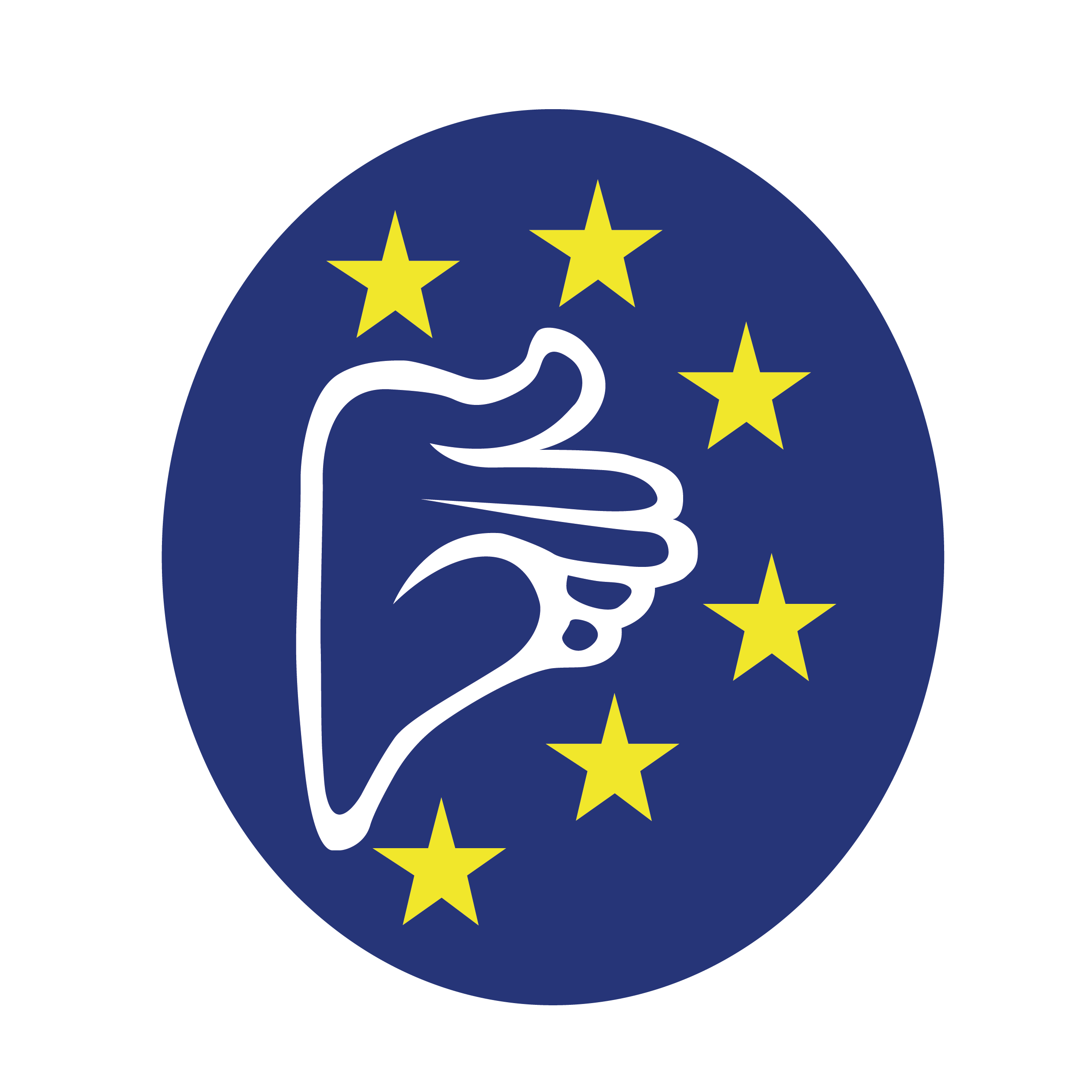Organisations
Team Network
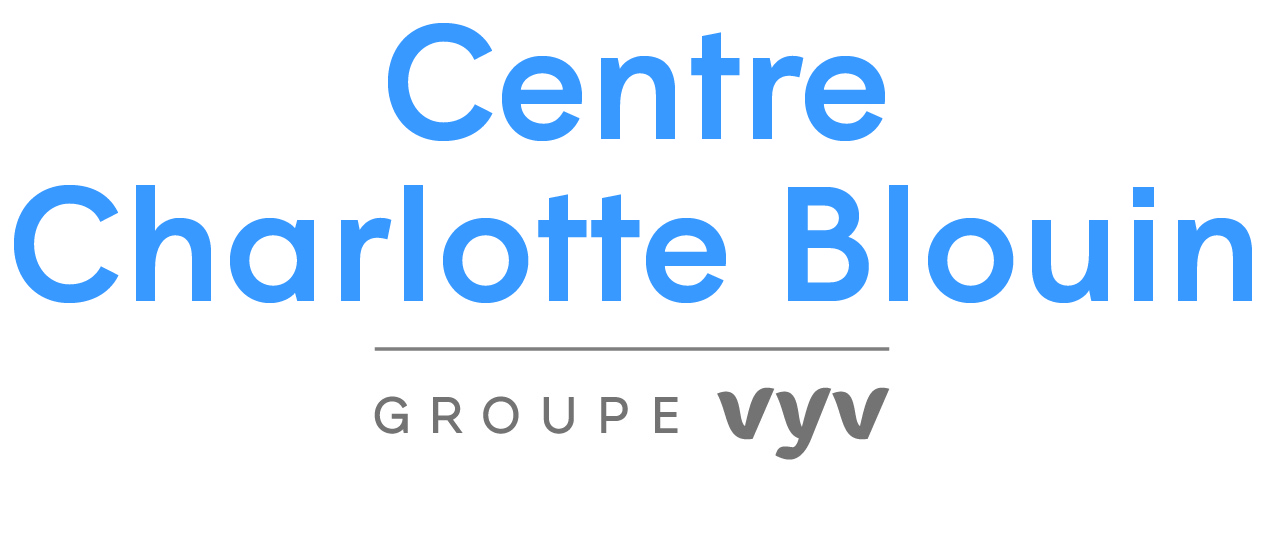
Is a social and medical institution managed by VYV3 group in Pays de la Loire and located in Angers. It covers the support of deaf and hearing impaired (HI) people at all ages of the life. From 0 to 20 years old, Centre Charlotte Blouin offers services to improve inclusion at school, but also in the society. For adults, services support deaf and HI for vocational training, job access or maintenance and for inclusion in the society. All these activities are realized with the expertise of a multidisciplinary team, specialised in deafness and hearing impairment.
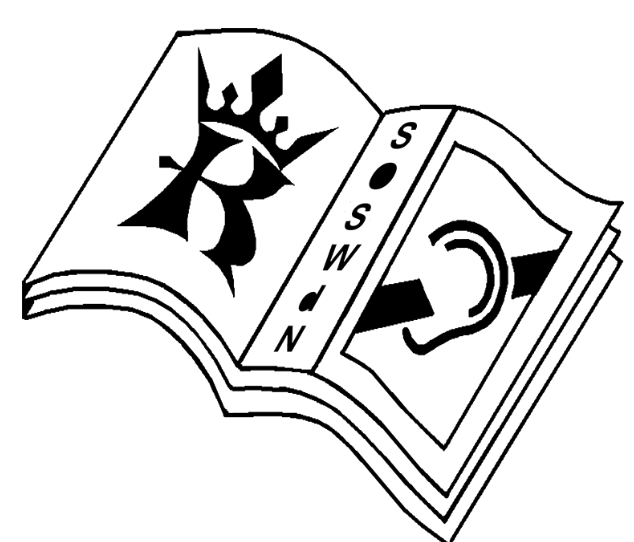
Is a special education unit providing services for hearing impaired, deaf students, students with aphasia and their families. The centre consists of Special I sectoral vocational school, Special technical secondary school, Special High School and Post-secondary school. The school staff are professionals trained in deaf education and oligophrenic pedagogy, who work as a teachers, special educators – tutors, vocational trainers, speech and language disorders therapist and psychologist.
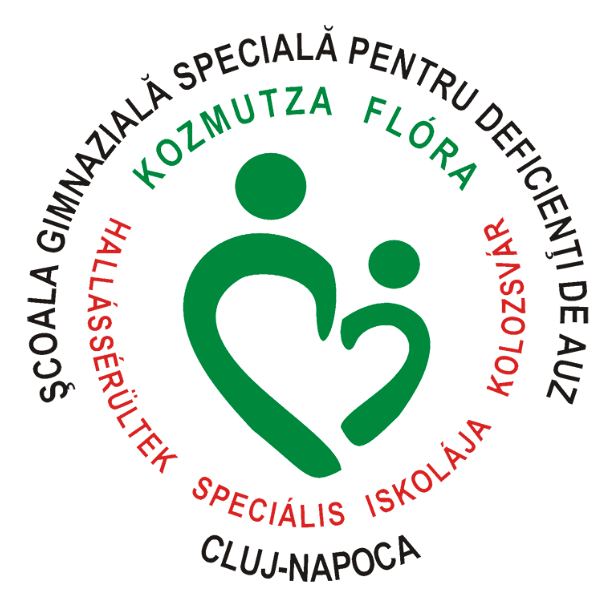
Școala Gimnazială Specială pentru Deficienți de Auz ”Kozmutza Flora”Cluj Napoca | Romaniakissgabrielacsilla@gmail.com
The “Kozmutza Flora” Special School for the Deaf was founded in 1888, and is the only specialized institution for children with deafness or hearing impairment of Hungarian-ethnic families living in Romania. Our school offers educational services from kindergarten through 8th or 10th grade to three main groups of children: with HI, with intellectual disabilities and associated difficulties, and with ASD. Our class sizes are low, and all our teachers have a degree in special education or psychology. Our mission is to create the conditions that ensure the possibility to maximize the potential development and acquisition of knowledge, skills and competences for every student.

Educational Centre for Deaf and Hard of Hearing of LithuaniaVilnius | Lithuaniadaiva.burkauskiene@lknuc.lt
Educational Center for Deaf and Hard of Hearing of Lithuania provides education for hearing impaired children from all over the country and is in charge of educational support of teachers, speech therapists and special education teachers and parents of hearing impaired children, educational and psychological assessment all over the country. We are in charge of compilation of Lithuanian Sign language dictionary, development of educational materials for hearing impaired students and dissemination of materials. The Center organizes in-service trainings for teachers and specialists of educational support, seminars and workshops. The Center has a long cooperation with national and international institutions / organizations for deaf and hard of hearing, hospital, municipal educational psychological services, experience in projects both national and international levels.

Is a reference center for the education of deaf people for more than 40 years. During this time, the center has transformed our methodology, spaces and resources in order to respond to all the needs of deaf students and their families in an environment of real inclusion. The Ponce de León center is a very special center, with an inclusive bilingual education of deaf and hearing students. We have two educational lines integrated in the same center. In the ordinary line we have the lines of Early Childhood Education, Primary, Secondary, Middle Prepress Cycle and Higher Cycle of Communication Mediation. In the line of special education, we offer Compulsory Basic Education, Programs of Transition to Adult Life and Professional Programs. Throughout the center there are deaf and hearing people, sharing languages, the Castilian Oral Language and Spanish Sign Language. All teachers know and / or master the Spanish Sign Language.
In the line of Ordinary Education, we realize a simultaneous bilingualism so we live in the classroom deaf and hearing students, sharing two languages: the oral language and the sign language. In the Stage of Early Childhood and Primary Education we have two teacher tutors (a reference teacher of sign language and a reference teacher in oral language) and specialists in sign language and speech therapists, which facilitate the development of communication and access to the curriculum. from a perspective of real inclusion, adapting material, spaces, methodologies …
In other educational stages, bilingualism is carried out with other professional figures such as Interpreter in Spanish Sign Language, Specialist in Spanish Sign Language (whose profile is of an adult deaf person with education training)
All professionals seek the same goal: we work for the integral education of children, youth and adults, with special dedication and affection towards the deaf community.
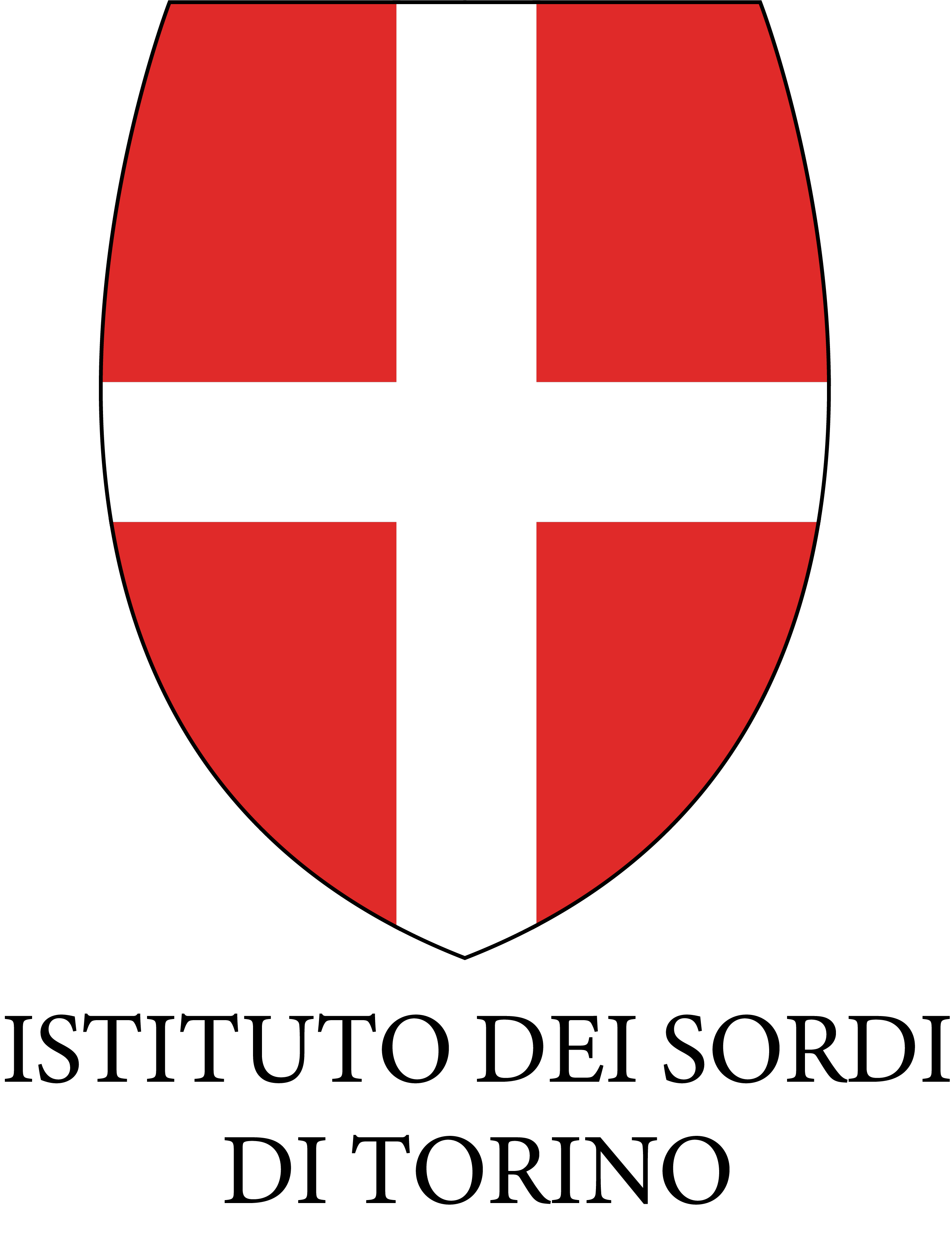
The Institute is a Foundation, a non-profit organization, governed by a Board of Trustees totally autonomous from political or religious authorities. Founded in 1814 by Savoy family, the Turin Institution for the Deaf is an organization providing a wide range of services and activities, for deaf, hard of hearing children and adults: – Adult education for deaf and hard of hearing – Vocational training and vocational guidance for young deaf (cooking and gardening) – Speech therapy and early intervention programs; – Recognized National Provider of training for teachers; other training activities for speech therapists, nurses, educators and other professionals – Home housing for deaf adults at risk of multiple discriminations; – Kindergarten for Deaf and hearing children (with national ID as formal school age 2-6 years old); – Special need teachers and educators service in mainstream schools supporting students in collaboration with the local social services and school authorities; – Specialized library and documentation centre for teachers and parents; – Special projects for the inclusion of deaf people in the society in the view of universal accessibility, with a focus on museum and cultural institutions; – Projects in collaboration with the Universities in the fields of researches, language rehabilitation and social services; European and International projects; – Specialized mentoring and tutoring for students with disabilities enrolled in the 3 public universities of the region; – Language classes: Italian, English, sign languages; – Sensorial Garden; – European Solidarity Corps; – Counselling to public employment services.
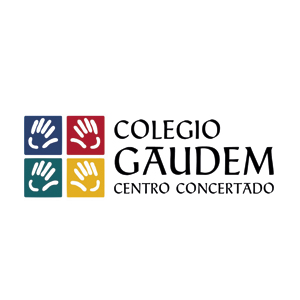
Colegio Gaudem, located in Madrid Spain, is a trilingual an inclusive school (Spanish, English and Spanish Sign Language – L.S.E). We are two schools in one building, a Special Education school (Compulsory Basic Education and Vocational Training) with around 40 students, from 6 to 21 years old and an Ordinary school with approx. 1200 students from 1 to 18 years old. Both schools have deaf and hearing students, their needs and abilities delimit their schooling in order to meet their curricular and social needs as well as their inclusiveness in the most appropriate manner. Our expertise is in Sign Bilingualism, inclusive education, Cued Speech, Sign Language and Speech Therapy, this is enabled by a multidisciplinary team specialized in deafness, hard of hearing, language and learning disorders.

The school was founded in 1903 as the Institute for the Deaf. From that year to present day pupils with hearing impairment are educated there. In addition to hearing impaired pupils, there are also educated pupils with impaired communication ability, learning disabilities and pupils with multiple disabilities, hearing imparment, mental, physical, and visual disability. The school as a whole provides upbringing and education to children ( around 100) from the whole Banská Bystrica and Žilina regions. It educates pupils from 2.5 to 20 years, from kindergarten to practical school.
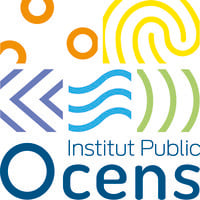
Situated in the Loire Valley (France) The Ocens Public Institute was created in January 2020 after the fusion of two social health-care institutions, The Institute of the Persagotière and the Insitute of Les Hauts Thebaudières. The Institute accompanies children, adolescents as well as adults with sensory deficiencies (hearing and visual) as well as those with language disorders and associated disorders such as those of the Autism spectrum (ASD). The institute intervenes on numerous levels: school enrolment, education, training, orientation, inclusion programs, professional integration, compensation and readaptation, medical care, supporting families, early intervention, and testing. In 2020 the Institute worked with nearly 760 children and adolescents and 300 adultes referred to us by the local agency for persons with disabilitilies (MDPH). With sites in Nantes and Vertou, The institute brings together more than 400 professionals from 46 different occupations.

Liceul Tehnologic Special Pentru Deficienti De Auz Cluj-NapocaCluj-Napoca | Romaniazoepiontchevici@yahoo.com
LICEUL TEHNOLOGIC SPECIAL PENTRU DEFICIENȚI DE AUZ CLUJ-NAPOCA (SPECIAL TECHNOLOGICAL HIGH SCHOOL FOR HEARING IMPAIRD CLUJ-NAPOCA) is a public institution with over 130 years of experience in the field of education and rehabilitation of children with hearing impairments or/and additional disabilities, offering services to improve the educational, social and professional inclusion, provided with the expertise of a multidisciplinary team. Every year the institution offer educational services for almost 200 pupils from 22 counties of Romania.
Combining tradition and innovation, it offer educational and therapeutic services within the following departments: The Center for Family Support and Early Intervention of Children with Hearing/ Additional Disabilities; The Center for Hearing and Language Rehabilitation; Kindergarten; Primary, Secondary and High School. The institution also has: an audiology and audiometry Laboratory and an ear mold laboratory.
The common goal of the interdisciplinary approach is the development of the: hearing abilities, communications skills (in verbal, spoken or sign language), social, cultural and emotional skills.
The main activities are: formal/educational activities, speech therapy, auditory training, educational audiology, psychomotor education, rhythmic education, complex and integrated therapies, extracurricular activities (volunteering, youth exchanges via Erasmus+ projects, community work, development of entrepreneurship, artistic and sports skills).
At the end of high school students receive a computing technician Operator certificate/qualification.
Depending on the particularities of the disability, the educational approach combines auditory-verbal therapy, the verbotonal method, sign language, dactyl alphabet/language, lipreading and total communication.
The school follows the normal curriculum, adapted to the specific needs of hearing impaired students and provides both individual and group activities, designed to develop our student’s academic, social and emotional skills, in order to turn them into fully functioning active citizens at the end of their studies. For the students with additional disabilities, the school has a specialized curriculum.
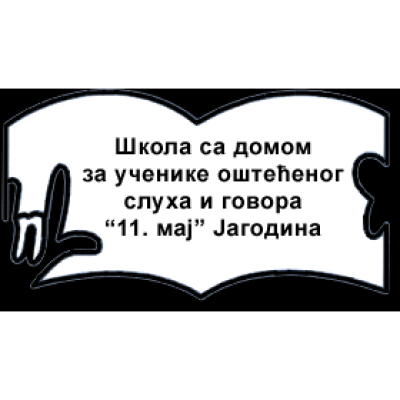
Škola sa domom za učenike oštećenog sluha i govora ,,11.maj”Jagodina | Serbiakovacevicdragana959@yahoo.com
The school with boarding for students with hearing and speech impairments, “11TH MAY”, located in Jagodina, was founded in 1928. and is one of the oldest state special education institutions in Serbia and the fourth special school for children with hearing and speech impairments in the former Yugoslavia (after Zagreb in 1885, Belgrade in 1897 and Ljubljana in 1890). Throughout history, in accordance with the needs of the social community, the School expands its activities, so that today: – The school performs the activities of the preparatory preschool program and early rehabilitation of students with disabilities within the development group; – The school performs the activity of primary education and upbringing of students with disabilities; – The school performs the activity of secondary vocational education and upbringing of students with developmental disabilities in the field of work: 1) baker 2) bookbinder 3) male hairdresser and female hairdresser. The school also provides additional support to other regular schools. The school, in addition to classrooms for each class, has two cabinets for special audio pedagogical work, a physical education hall, sensory room, digital classroom, library, kitchen with dining room, dormitories for male and female children, two living rooms for students in the dormitory and equipped digital home. Within the school space, there are also modernly equipped classrooms for practical classes for bakers, hairdressers and graphic artists. School It also has a school yard with a park and a playground for small sports. The school also has a boarding school that houses students from other cities who attend our school. In accordance with modern developments in the field of education, the School has established international cooperation with schools and institutions from Europe that also deal with work with children with disabilities.
In the line of Ordinary Education, we realize a simultaneous bilingualism so we live in the classroom deaf and hearing students, sharing two languages: the oral language and the sign language. In the Stage of Early Childhood and Primary Education we have two teacher tutors (a reference teacher of sign language and a reference teacher in oral language) and specialists in sign language and speech therapists, which facilitate the development of communication and access to the curriculum. from a perspective of real inclusion, adapting material, spaces, methodologies …
In other educational stages, bilingualism is carried out with other professional figures such as Interpreter in Spanish Sign Language, Specialist in Spanish Sign Language (whose profile is of an adult deaf person with education training)
All professionals seek the same goal: we work for the integral education of children, youth and adults, with special dedication and affection towards the deaf community.
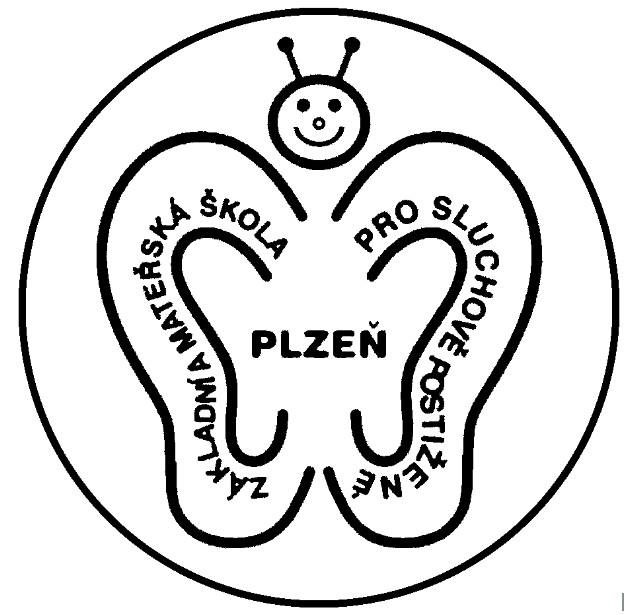
The school is located in the Western part of the Czech Republic.
Our school provides pre-school and elementary education for pupils from Pilsen and Karlovy Vary region.
We provide education for the hearing impaired children, children with speech defects and disorders of auditory perception, children with specific disorders of education and we help their parents to get to know and understand the world of their children better. We also help mainstream (standard) schools to diagnose these children.
The dawn of the education for the hearing impaired children in Pilsen starts around 1912. Two classes for deaf children were established then. The first official record of our school dates back to September 1968 when the construction of the school was given the green light.. The education of the hearing impaired pupils in Pilsen in the new building began on 31 May 1973.
At that time the school accommodated 45 employees and 130 pupils. The school contains these departments:
Kindergarten for the hearing impaired
Elementary for the hearing impaired
Boarding house
Afternoon school club
SPC (Special Pedagogical Center)
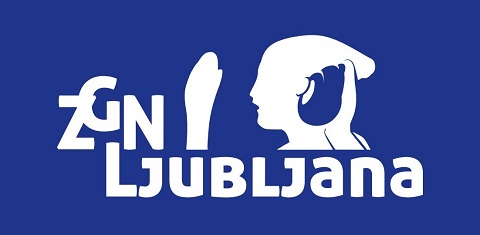
The School for the Deaf and Hard of Hearing Ljubljana (ZGNL) is the central Slovenian state institution for the treatment of the deaf/hard of hearing children and adolescents, and children, adolescents and adults with speech-language disorders. Our school employes 250 people, educates 366 children and adolescents, and we also treat around 1000 people per year within our medical unit. The School also has a strong mobile service within which we offer additional professional help to children in regular schools. ZGNL has the following units: kindergarten, primary school, secondary school, dorm and medical unit. For more than twenty years, teachers have been including Slovene sign language in their lessons. The number of people with autism spectrum disorders is also increasing in our School. In recent years, however, we formed a new group of children with special needs, i.e. deaf children with additional disabilities, mostly from socially disadvantaged families. Kindergarten in ZGNL implements a customized program for preschool children. This means, that the groups are smaller and in-depth work is being done with them in order to reduce deficits. Our kindergarten includes children with speech and language disorders, deaf children with cochlear implant, deaf children without cochlear implant and hard of hearing. Most children in kindergarten are deaf, often from families in which parents are also deaf. In primary schools we have a customized program with an equivalent educational standard and with a lower educational standard. The structure of children in primary schools has been changing in the last ten years.
Most children in primary school have combined disorders, among these often more severe behavioral and emotional problems. They come from families with little support. Our purpose is to treat children holistically, so the work of preschool children and children in primary school also includes a speech therapist, occupational therapist, psychologist, special pedagogue, physiotherapist, social pedagogue, social worker.
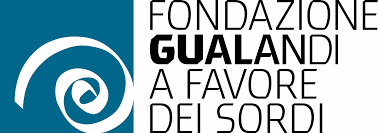
The Gualandi Foundation is a private institution founded in Bologna in 2003. It is born of the transformation of an ancient public health institution of the mid-19th century for welfare and charity founded by the Gualandi Brothers Giuseppe and Cesare in favour of children and adolescents with hearing issues.
In 2008 the nursery “Il cavallino a dondolo” opened its doors with the aim of offering an inclusive educational service, capable of welcoming every child in the best possible way. Our conviction was that a stimulating environment containing things to discover and experience (under the supervision of qualified and scrupulous educators) could contribute in overcoming the disadvantages of having hearing difficulties. In 2013 the Foundation opens the pre-school “Al Cinema!” creating a continuity with the nursery and its objectives. Nursery and pre-school are officially subordinated to the municipality of Bologna.
The Foundation is dedicated to organise events and other happenings (for hearing-impaired children, adolescents and adults) with the aim of facilitating the correct use of the Italian language, the acquisition of technical/professional knowledge and the stimulation of cognitive/relational-skills for an improved autonomy.
Next to the workshop experience, the Foundation proposes and promotes training courses for teachers and educators focusing on the inclusive methodology in particular.
The Foundation collaborates with associations and entities active on the territory for the promotion of cultural, educational and health/social-welfare oriented activities.

Spojená škola internátna (SSI) has the following units: kindergarten, primary school, secondary school and two dormitories.
Our secondary school (Koceľova) educates hearing-impaired youth (15-25 years) from all over the country and provides their education in such a way that, despite hearing impairments, students understand the demanding curriculum and are able to integrate into society and succeed in the labor market. With the help of special methods and compensatory aids, students at our school will be able to manage demanding fields of study despite the hearing impairment. Education at our school is also intended for hearing students with other educational needs (with learning disabilities, behavioral disorders, autism spectrum disorders, …). All the teachers at our school have studied special pedagogy too. Moreover a school psychologist, a social worker and a school speech therapist work regularly with students.

The « IRSA, Institut Royal pour Sourds et Aveugles », was founded in 1835 by the Congregation of the Sisters of Charity. It is the largest French-speaking institute of Belgium, specialized in the support of persons with sensory impairment with or without additional disorders, as well as children and adolescents with severe language disorders. Our organization covers numerous services within a multidisciplinary approach: an early intervention unit, a nursery, a special school from Kindergarten to secondary school, including vocational training, inclusion programs in ordinary schools, testing, compensation and re-education, medical care, social and psychological support, day care centre for all ages, as well as a boarding school. We welcome more than 1000 children, adolescents and adults daily and count 500 professionals. Our mission is to draw out an individual project for each person we accompany, in order to promote his development and well-being the best we can. Since January 2013, we have an academic chair at the Catholic University of Louvain UCL, devoted to sensory impairment and learning difficulties.
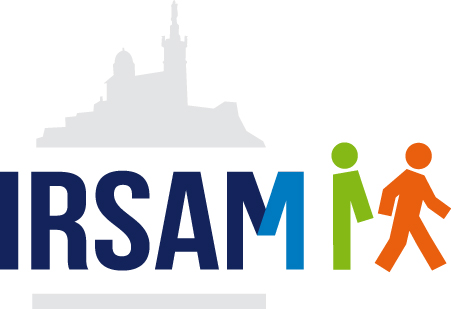
IRSAM was founded 160 years ago in Marseille on the initiative of Father Louis-Toussaint Dassy that was concerned about people with sensory disabilities. IRSAM organisation supports people with sensory impairments, in specialized (sheltered) workspaces, in mainstream settings, as well as, in learning and training centers. IRSAM manages 25 facilities and services in Provence Alpes Cote d’Azur, Rhone-Alpes and Reunion. IRSAM currently supports more than 1350 children, adolescents, adults and other people with disabilities. It employs more than 1000 people at the equivalent of 830 full-time positions.
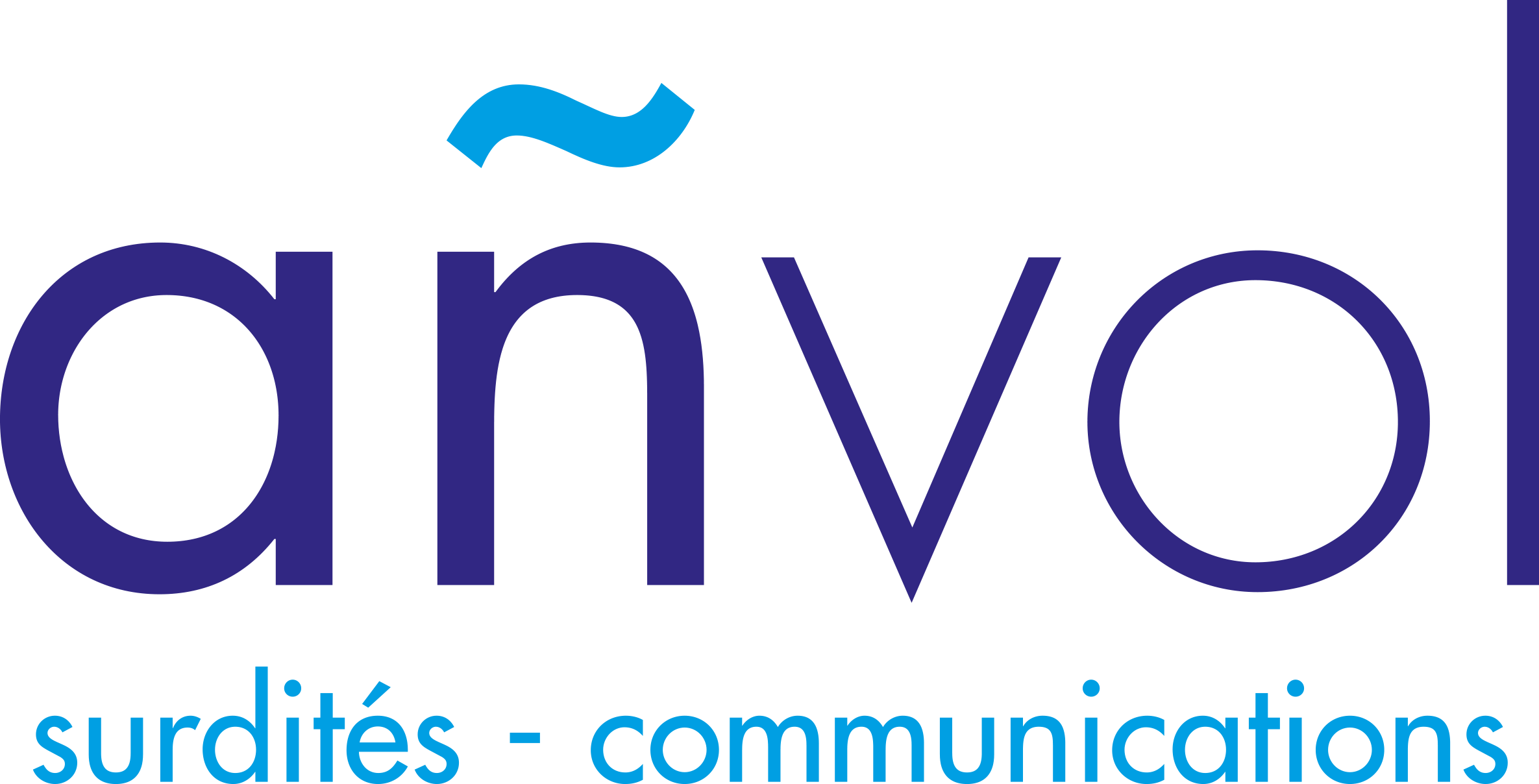
The "añvol Bretagne" association supports deaf and hard-of-hearing children and adults in their social, educational, professional, and cultural inclusion.
añvol is a user association that receives financial support from the Regional Health Agency (ARS) and the Departmental Councils of Finistère and Ille-et-Vilaine. añvol is a healthcare manager for deaf individuals.
It was formed through the merger of URAPEDA Bretagne and AFDA in 2021. añvol is a nonprofit association governed by a board of directors composed of parents of deaf children, users, and supporters.
By bringing together a variety of expertise specific to deafness under one organization, añvol meets the needs of deaf individuals of all ages and their families throughout Brittany, as well as the expectations of various partners.
In accordance with the Law of February 11, 2005, for equal rights and opportunities, añvol's primary mission is to support projects developed in collaboration with deaf users.

L’INJS de Chambéry est un établissement public français national administratif institué par le décret n° 74-355 du 26 avril 1974 relatif à l’organisation et au régime administratif et financier des instituts nationaux de jeunes sourds et de jeunes aveugles en France. L’établissement a été fondé en 1840 sous l’ancien royaume de Piémont-Sardaigne et est devenu historiquement un des quatre instituts nationaux français, opérateurs de l’Etat à vocation médico-sociale, dont les missions, centrées sur l’accompagnement des jeunes sourds de 0 à 20 ans et de leurs familles, sont notamment de
• contribuer au dépistage, à la prothèse ou à l’appareillage, à l’action médico-éducative précoce et postscolaire, à l’information des familles et à l’orientation de leurs enfants ;
• assurer à ceux qu’ils accueillent un enseignement, une formation professionnelle, une préparation à la vie sociale avec les moyens adaptés à leur handicap ;
• participer à la recherche.
L’établissement accompagne aujourd’hui 255 jeunes sourds et dysphasiques (jeunes avec trouble du langage oral) sur les deux Savoie, avec des modalités diverses : services nomades intervenant en inclusion (SSEFS Savoie et Haute-Savoie), dispositifs d’accueil semi-inclusifs et dispositifs d’accueil internes, dont un dispositif élémentaire bilingue (UEE Savoie et Haute-Savoie/UEI Savoie), service de suite et service d’insertion sociale et professionnelle (SAVS Savoie).
La construction des compétences linguistiques, scolaires et psycho-sociales est proposée autour des deux langues : la langue française avec ou sans LPC et/ou la langue des signes française.
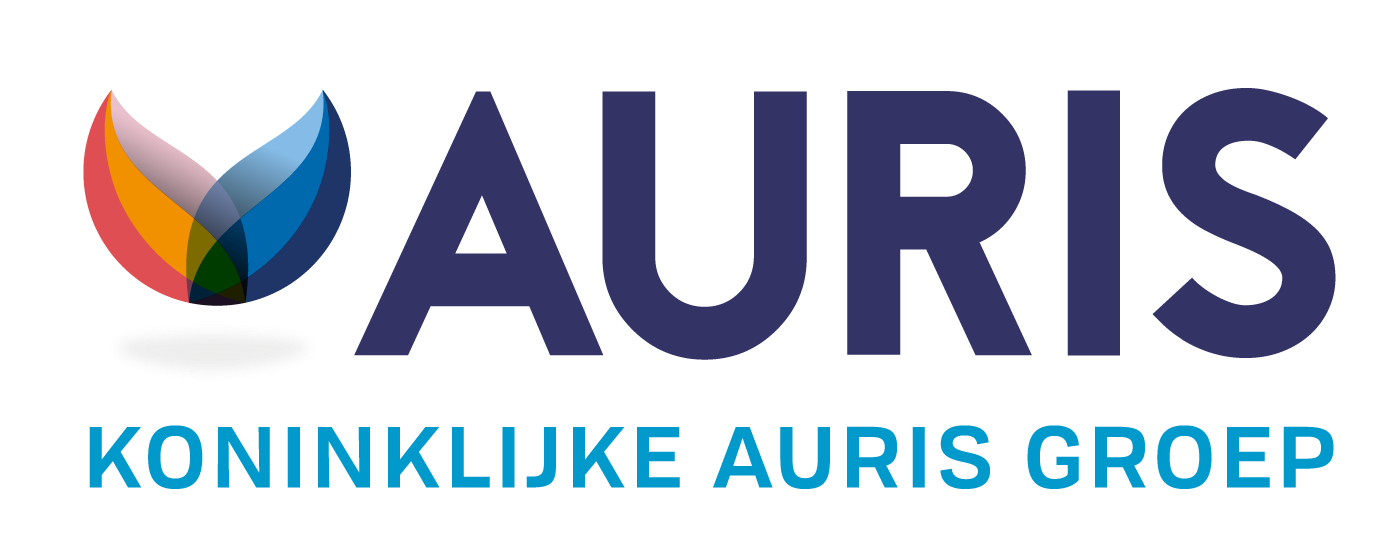
Royal Auris GroupNetherlands
Auris is a Dutch expertise organization that provides education, care, and support for children and young adults with hearing, speech, and language difficulties. Although 90% of our population consists of students with a development language disorder (DLD), our work within HIPEN focuses on the education and support of approximately 200 deaf and hearing impaired (DHH) students across three special education locations. Additionally, we provide itinerant support to over 600 DHH students in mainstream education.
Within our own specialized education, we intensively support DHH students. In addition to our special education sites, Auris supports DHH students in mainstream education through the deployment of itinerant teachers. These specialized educators enhance the capabilities of mainstream schoolteachers by sharing their specialized knowledge and skills. By integrating these services, Auris enhances the educational opportunities for DHH students, facilitating their full inclusion and participation in the broader educational landscape.
Auris offers a unique bimodal bilingual education program, where both spoken Dutch and Dutch Sign Language (DSL) are integrated into the learning environment of our special education locations. Our approach is designed to meet the diverse needs of DHH students, ensuring that they can fully access education while overcoming the communication barriers they face. Students receive personalized education plans that are tailored to their strengths and needs, whether they are in special or mainstream settings. Our mission is to empower all students to participate fully in society.
Auris continues professional development and maintains a strong focus on research and innovation. Our organization is actively engaged in developing inclusive educational models, such as the implementation of bimodal bilingual education within mainstream schools—an approach that is still unique in the Netherlands.
By working closely with families, educational partners, and other organizations, Auris aims to create an inclusive environment where DHH students can thrive. As a proud member of HIPEN, we look forward to contributing our expertise while learning from other organizations across Europe to improve education for deaf and hard-of-hearing students.
Become a Member
Funded by the European Union. Views and opinions expressed are however those of the author(s) only and do not necessarily reflect those of the European Union or European and Culture Executive Agency (EACEA). Neither the European Union nor EACEA can be held responsible for them.


